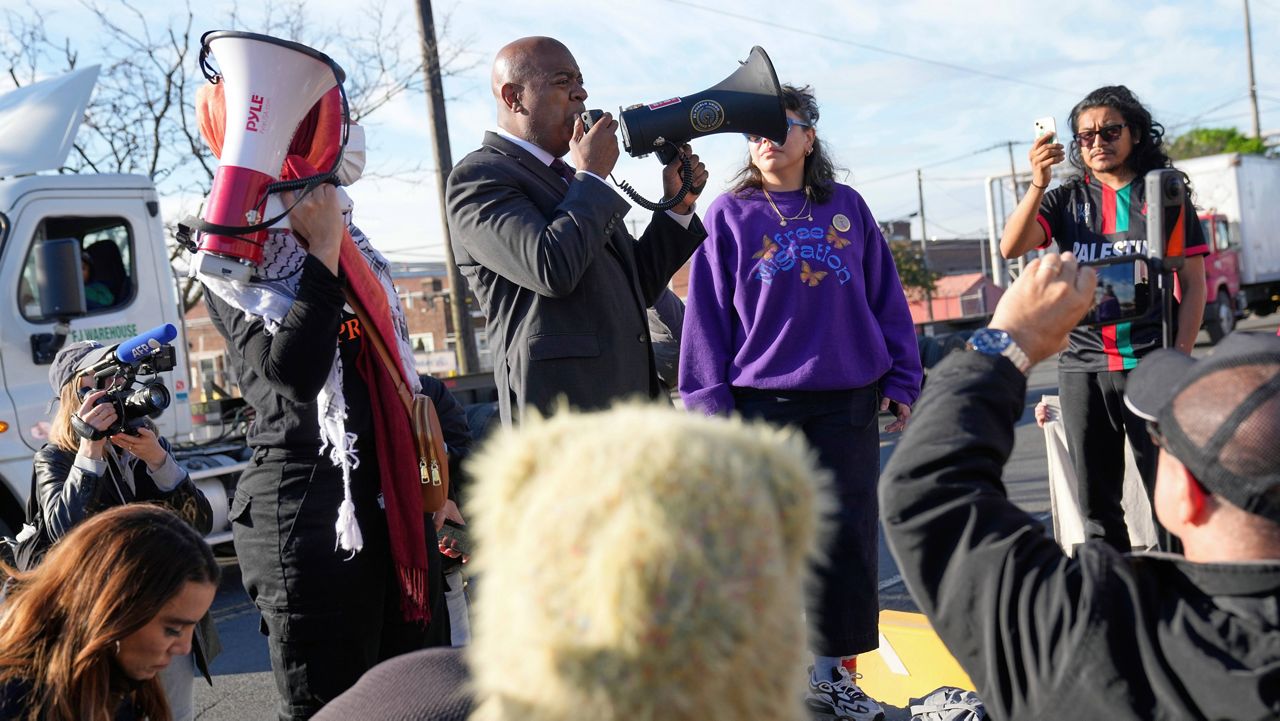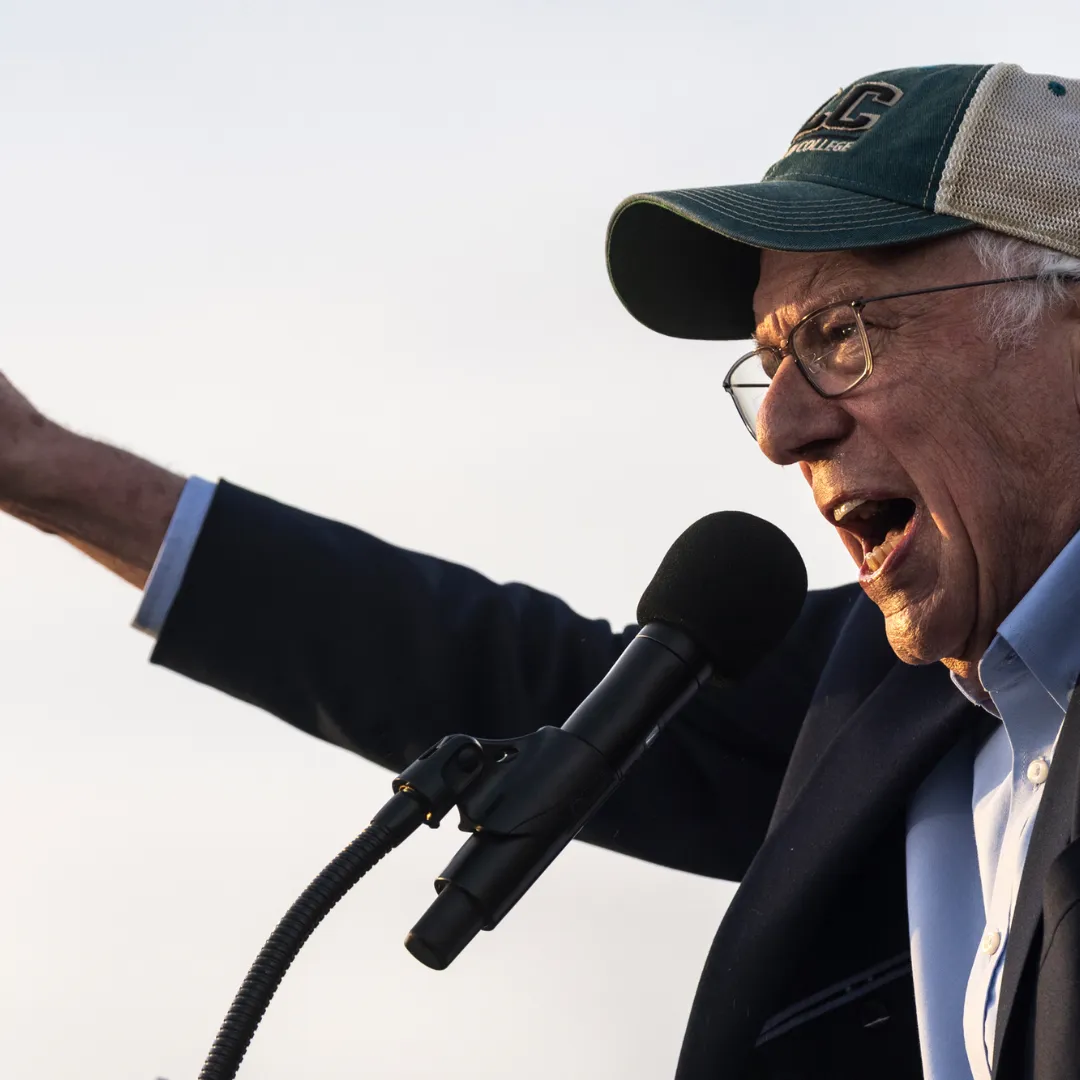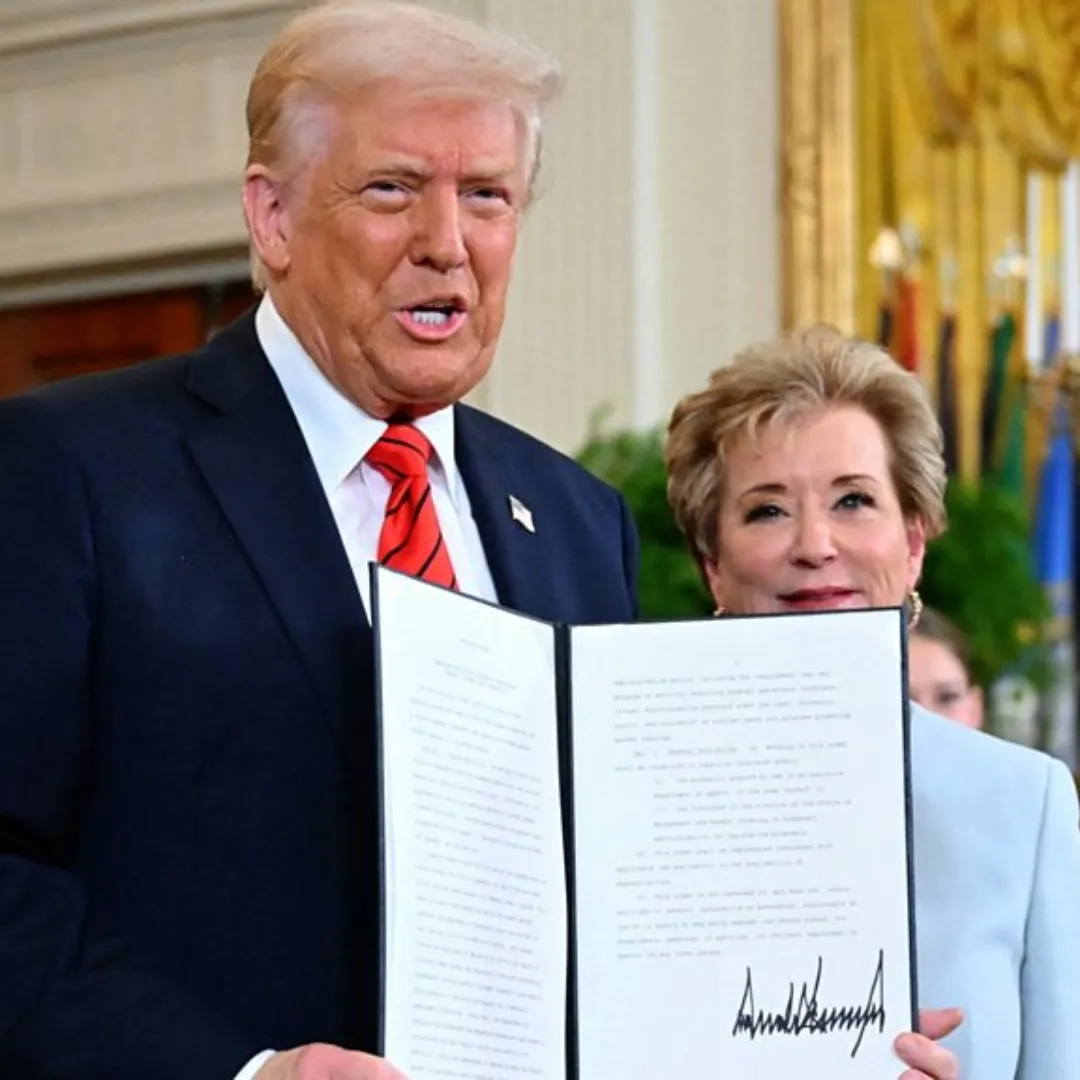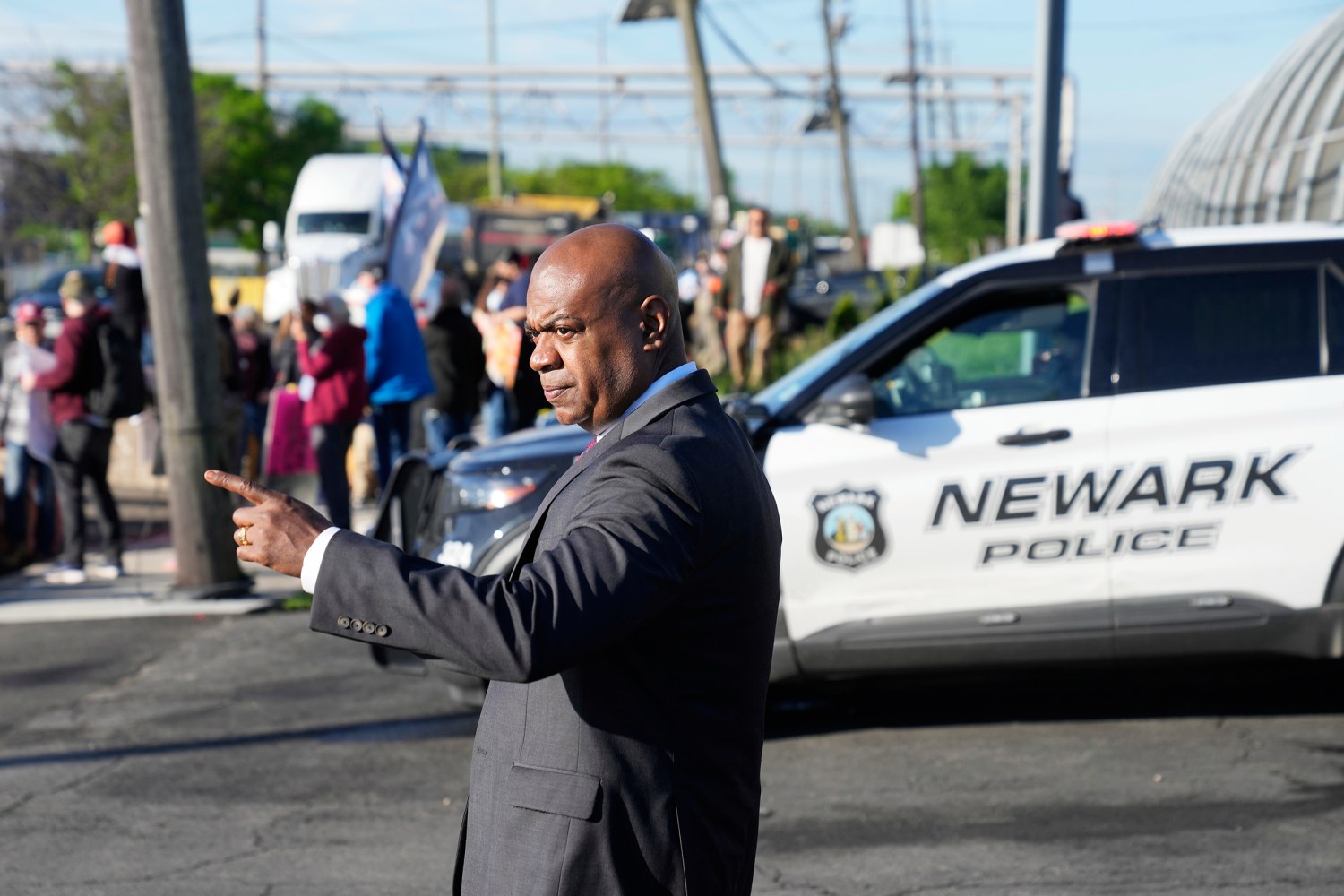
Newark Mayor Ras Baraka (D) has raised concerns over what he believes was a targeted arrest by U.S. Immigration and Customs Enforcement (ICE) agents outside the Delaney Hall detention center in New Jersey.
Baraka, who is running for governor in New Jersey’s upcoming race, had visited the detention facility with three Democratic members of Congress earlier in the day to conduct an oversight inspection.
In an appearance on MSNBC’s The Briefing with Jen Psaki, Baraka described how he and other lawmakers were initially given a long period to leave the premises before being approached by ICE agents who arrested him.
He argued that the arrest was a deliberate and targeted action, explaining, “Nothing happened for a long, long time, you know, for at least over an hour. And then, you know, after that, they finally told us to leave, and I told him I was leaving, they came outside the gate and arrested me. So it looked like it was targeted.”
Baraka further emphasized that, although others were with him, only he was singled out for arrest. “They came directly to me and tried to arrest me … no one else. Me,” the mayor told Psaki. “And so, I honestly believe, you know, I was targeted there.”
Baraka’s arrest has generated considerable media attention and political debate, with Baraka asserting that he was the victim of political retaliation and an attempt to suppress oversight of the controversial detention facility.
The arrest occurred outside of Delaney Hall, an ICE detention facility in New Jersey. Baraka had been accompanying Reps. Bonnie Watson Coleman (D), Rob Menendez (D), and LaMonica McIver (D) for an inspection of the facility, which had been under scrutiny due to ongoing concerns over its operations and treatment of detainees.
The lawmakers were conducting the inspection in their capacity as elected officials and to exercise oversight of the detention facility.

After the arrest, Baraka made multiple appearances on major news networks, discussing his perspective on the events of the day. He later clarified that he was not there to protest but to attend a press conference with the Garden State congressional delegation.
Watson Coleman also addressed the situation, saying that the group had come to the facility to inspect it, not to tour it.
Despite these clarifications, federal authorities took a different view of the situation. Alina Habba, the interim U.S. attorney for the District of New Jersey, defended ICE’s actions, claiming that Baraka’s arrest was justified because he had trespassed and ignored multiple warnings from Homeland Security Investigations (HSI) to leave the premises.
In a post on X, Habba wrote, “He has willingly chosen to disregard the law. That will not stand in this state. He has been taken into custody.”
Baraka maintained that his presence at the facility was not an act of protest but an effort to conduct proper oversight of a detention center that had been under legal and ethical scrutiny.
“I was there for a press conference with our congressional delegation. We went to check on the people in that facility, not for a tour. And after we left, that’s when everything happened,” Baraka explained during his MSNBC interview.
He expressed frustration that he, specifically, had been arrested while others at the scene were allowed to leave without incident. “So, they came to me directly, tried to arrest me, and no one else,” he said.
Baraka’s words suggested that he felt his arrest was politically motivated, adding to his belief that ICE’s actions were part of a broader attempt to stifle dissent and limit government oversight.

Despite the arrest, Baraka noted that while in detention, DHS officials were professional and respectful. “They treated me with respect and integrity,” he said. “But, you know, it was still uncomfortable and, you know, humiliating situation for me.”
His comments reflected a contrast between his perception of the actions taken by the officials and his belief that the arrest itself was unnecessary and politically charged.
Baraka’s arrest is occurring amid ongoing tension in New Jersey over the operation of detention facilities and the treatment of undocumented immigrants. Baraka has been an outspoken critic of President Trump’s immigration policies, particularly his approach to immigrant detention and the operations of ICE.
The mayor has long argued that these policies violate human rights and ignore the dignity of those affected by the immigration system.
In the weeks leading up to the arrest, Baraka had also filed a lawsuit against the private security company, The Geo Group Inc., which operates the Delaney Hall facility under a multi-year contract with ICE.
The lawsuit accused the company of failing to grant city officials access to inspect the facility, violating local and state law in the process. Baraka’s suit claimed that the Geo Group had failed to meet basic municipal inspection requirements, including those related to plumbing, electricity, and fire safety.
The Department of Homeland Security (DHS) strongly rejected these accusations, issuing a statement asserting that Delaney Hall had the necessary permits for operation and had passed inspections for plumbing, electrical work, and fire safety codes.
“The allegations made by Newark politicians that Delaney does not have the proper permitting are false,” DHS stated in a Friday press release, seeking to invalidate Baraka’s legal claims.

Baraka’s arrest is not an isolated incident. The conflict between local officials and federal agencies, particularly ICE, has been escalating in New Jersey and across the country as immigration policies remain a contentious issue.
Baraka’s arrest highlights the growing tension between those who advocate for immigrant rights and federal enforcement agencies that continue to crack down on illegal immigration.
The Newark mayor’s arrest also underscores the complicated relationship between law enforcement and elected officials. While ICE justified the arrest based on trespassing violations, Baraka and other local officials have repeatedly criticized ICE for overreach and lack of transparency in their operations.
The tension between federal authorities and local governments, particularly in Democratic-led cities, has reached a boiling point as the two sides clash over the implementation of immigration policies.
Rep. Bonnie Watson Coleman, who was with Baraka during the arrest, responded strongly to the incident, accusing federal authorities of misrepresenting the events.
She claimed that ICE had spread false information about what transpired at Delaney Hall, including allegations that members of Congress had “stormed” the facility.
Watson Coleman, in a post on X, denied those claims, explaining that the group had entered the facility lawfully and with proper oversight authority. She also condemned ICE agents for physically shoving her during the confrontation.
“This scuffle, during which an ICE agent physically shoved me, occurred AFTER we had entered the Delaney Hall premises,” Watson Coleman wrote. “We entered the facility, came BACK OUT to speak to the Mayor, and then ICE agents began shoving us.”
Her remarks suggest that ICE’s actions were part of a broader effort to intimidate and disrupt the oversight process, painting the incident as a politically charged clash between federal authorities and lawmakers seeking to investigate the facility’s operations.
Baraka’s arrest and the broader controversy over Delaney Hall raise important questions about the ethics of immigration detention and the role of local officials in overseeing such facilities.
As a key city in New Jersey, Newark’s local government has a vested interest in ensuring that detention facilities comply with state and city regulations, especially when it comes to the welfare of those detained.
The incident has also raised concerns about the overreach of ICE and other federal agencies in conducting operations in local communities. Local leaders like Baraka argue that federal agencies should be held accountable for their actions, particularly when it comes to the treatment of immigrants and the transparency of detention facilities.
However, the federal government has defended its actions, arguing that the arrest was based on legal violations and that it is necessary to maintain order and enforce the law.
In the wake of his arrest, Baraka’s political future remains uncertain, especially as he seeks to run for governor of New Jersey. The incident has placed him squarely at the center of the ongoing debate over immigration policies and the role of local government in overseeing federal actions.
His outspoken criticism of the Trump administration’s immigration policies has made him a key figure in the push for immigration reform, but his arrest has also brought attention to the challenges faced by local leaders who are willing to stand up to federal authorities.
Baraka’s gubernatorial campaign may be affected by the fallout from this incident, but it has also solidified his position as a vocal advocate for immigrant rights and government accountability.
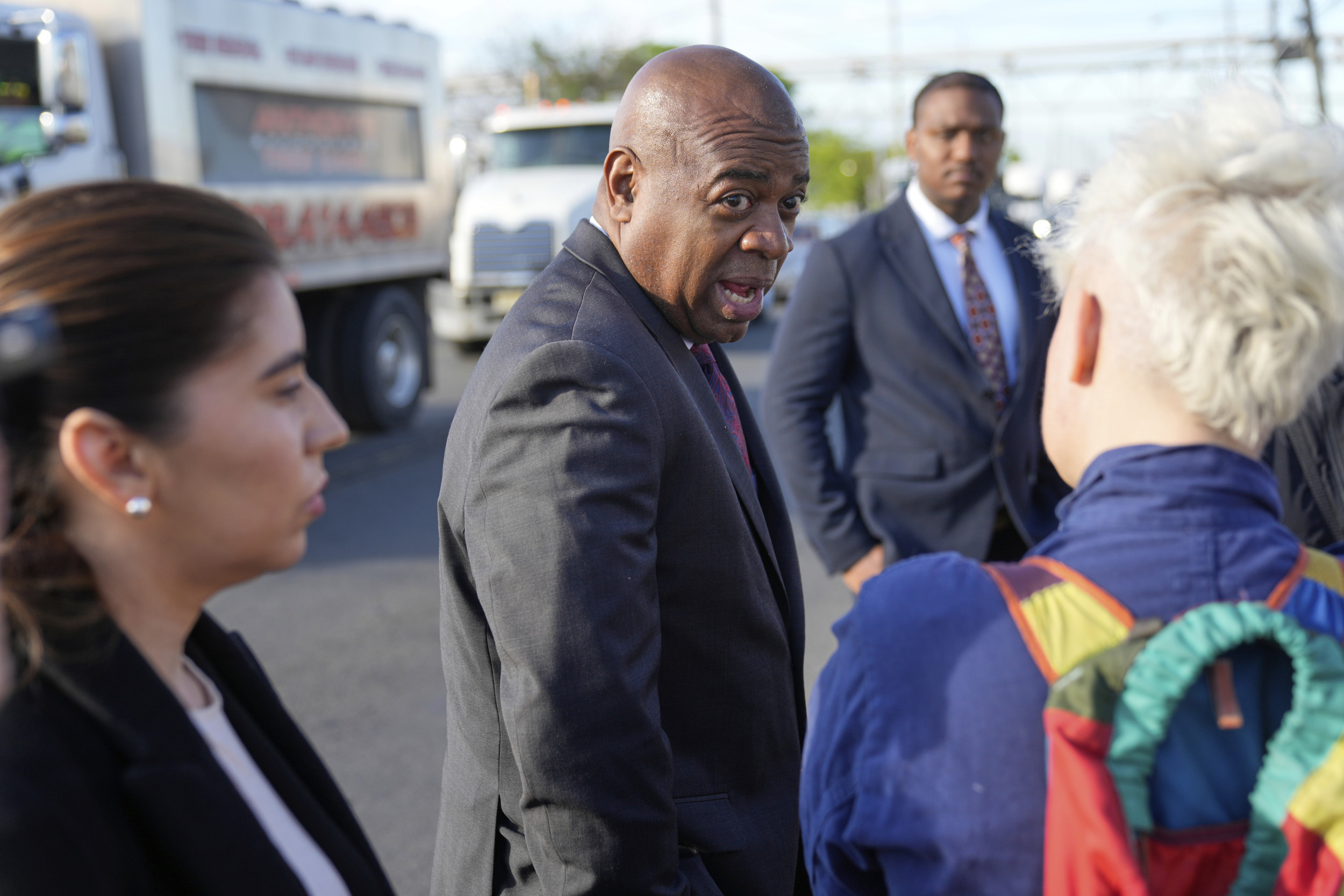
His call for transparency and oversight of immigration facilities has earned him support from progressives in New Jersey, but it has also drawn the ire of those who support more stringent immigration policies.
Baraka’s arrest outside the ICE facility in New Jersey serves as a flashpoint in the ongoing debate over immigration policies and the power of federal agencies. The incident highlights the tension between local officials and federal authorities, as well as the growing frustration among Democratic leaders over the Trump administration’s immigration policies.
As the situation unfolds, it remains to be seen how this confrontation will impact Baraka’s political career and whether it will further fuel the national conversation about immigration reform and the accountability of federal law enforcement agencies.
